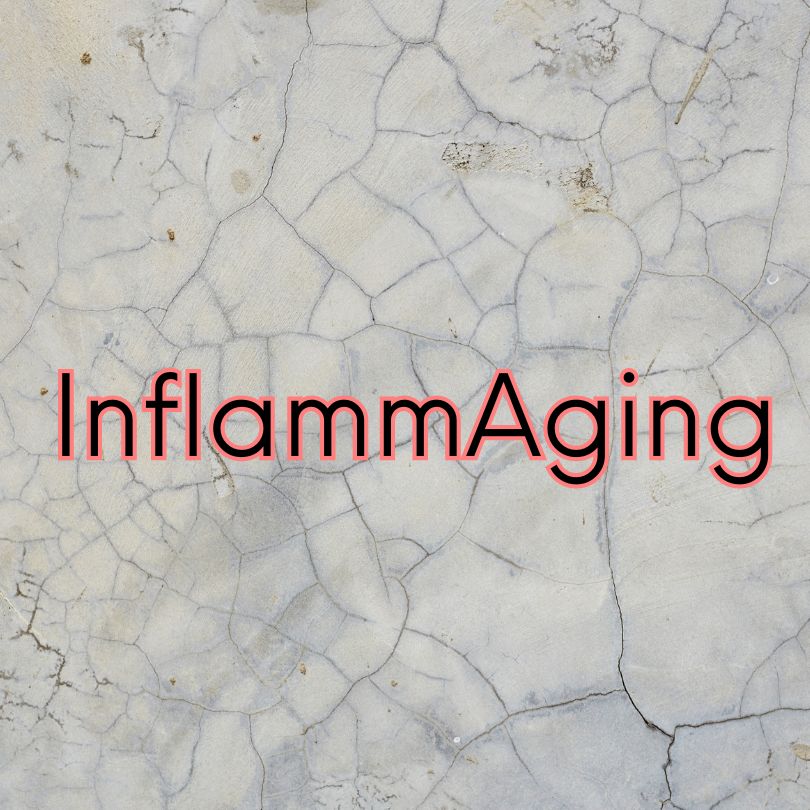
Understanding InflammAging: The Intersection of Aging and Inflammation
Share
Understanding InflammAging: The Intersection of Aging and Inflammation
Aging is an inevitable biological process that affects every living organism. As we age, our bodies undergo a multitude of changes at the cellular, molecular, and systemic levels. One of the key processes implicated in aging is inflammation, and the concept of "inflammAging" has garnered significant attention in recent years. InflammAging refers to the chronic, low-grade inflammation that occurs with advancing age and is believed to play a crucial role in the development of age-related diseases. In this blog post, we will delve deeper into the phenomenon of inflammAging, exploring its causes, consequences, and potential interventions.
Understanding Inflammation:
Inflammation is a fundamental biological response that occurs in reaction to harmful stimuli such as pathogens, tissue injury, or irritants. It is a tightly regulated process orchestrated by the immune system, aimed at eliminating the threat and promoting tissue repair. Acute inflammation is typically a transient and beneficial response that helps the body to maintain homeostasis. However, when inflammation becomes chronic and dysregulated, it can have detrimental effects on health.
Causes of InflammAging:
The exact mechanisms underlying inflammAging are complex and multifactorial, involving a combination of genetic, environmental, and lifestyle factors. Several theories have been proposed to explain the origins of inflammAging, including:
-
Senescent Cells: Senescent cells are cells that have stopped dividing and undergo changes in their gene expression profile. These cells accumulate with age and secrete pro-inflammatory molecules, contributing to chronic inflammation.
-
Dysregulated Immune Function: Aging is associated with alterations in immune function, often referred to as immunosenescence. This dysregulation can lead to an imbalance in immune responses, resulting in chronic inflammation.
-
Mitochondrial Dysfunction: Mitochondria, the powerhouse of the cell, play a crucial role in energy production and cellular homeostasis. With age, mitochondrial function declines, leading to the accumulation of reactive oxygen species (ROS) and triggering inflammatory pathways.
-
Dysbiosis: The gut microbiota, consisting of trillions of microorganisms, plays a vital role in immune regulation and inflammation. Age-related changes in the gut microbiota composition, known as dysbiosis, can contribute to inflammAging.
Consequences of InflammAging:
InflammAging is implicated in the pathogenesis of various age-related diseases, including cardiovascular disease, neurodegenerative disorders, metabolic syndrome, and cancer. Chronic inflammation can promote tissue damage, impair cellular function, and disrupt physiological processes, ultimately contributing to disease progression and functional decline. Moreover, inflammAging has been linked to accelerated aging and reduced lifespan in experimental models.
Interventions to Combat InflammAging:
While aging is inevitable, strategies to mitigate inflammAging and its adverse effects are actively being explored. Some potential interventions include:
-
Dietary Modifications: Consuming a balanced diet rich in anti-inflammatory foods such as fruits, vegetables, whole grains, and omega-3 fatty acids may help reduce inflammation and promote healthy aging.
-
Regular Exercise: Physical activity has been shown to have anti-inflammatory effects and can improve immune function, thereby potentially reducing inflammAging.
-
Pharmacological Interventions: Several drugs with anti-inflammatory properties, such as nonsteroidal anti-inflammatory drugs (NSAIDs), corticosteroids, and certain nutraceuticals, are being investigated for their potential to target inflammAging.
-
Caloric Restriction: Caloric restriction, without malnutrition, has been shown to extend lifespan and delay the onset of age-related diseases in various organisms. It exerts anti-inflammatory effects and improves metabolic health.
-
Senolytics: Senolytics are compounds that selectively target and eliminate senescent cells, thereby reducing inflammation and improving tissue function. Clinical trials investigating senolytic therapies are underway for various age-related conditions.
InflammAging represents a significant challenge in the field of aging research, with far-reaching implications for health and longevity. By unravelling the underlying mechanisms of inflammAging and identifying strategies to modulate this process, researchers hope to develop interventions that promote healthy aging and improve quality of life in older adults. While much progress has been made, further studies are needed to fully understand inflammAging and translate this knowledge into effective clinical interventions. Ultimately, addressing inflammAging may hold the key to unlocking the secrets of longevity and extending the healthspan of individuals worldwide.
